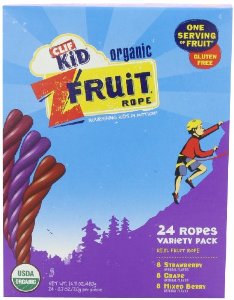Healthy Skin-How Chinese Herbs Benefit Your Skin
Traditional Chinese Medicine (TCM)
Healthy Skin-How Chinese Herbs Benefit Your Skin
Healthy Skin-How Chinese Herbs Benefit Your Skin
Healthy Skin-How Chinese Herbs Benefit Your Skin
Healthy Skin-How Chinese Herbs Benefit Your Skin
Chinese herbs are an excellent source of modern drugs and treatMent cosmetics, provided one knows where and how to look. To those who are not familiar with it, traditional Chinese medicine (TCM) is mysterious and full of "mumbo jumbo," as its theory and practice are steeped in esoteric terminology. Terms such as qu feng (wind dispelling), qing re (heat removing or dispersing), xie (evil), and yi qi (vital energy replenishing) are certainly difficult to comprehend, though others such as jie du (removing toxins), sheng ji (growing muscles/flesh), ming mu (brightening vision), and shen (calming the spirit) are more obvious. The terminology may seem archaic and sometimes downright superstitious, but the TCM system hasevolved over many centuries in a logical way. One just view it hasto you have form another perspective. Then it will make sense.
Although I never had formal training in TCM, my research over the past 20 years has enabled me to figure out a few things, especially in the correlation between traditional properties and modern scientific findings, as well as in predicting an herb's Ph Meter and about 0.5 cm thick), and not the shanzha candy that comes in thin wafers stacked 3-4 cm high and wrapped in paper. If the raw shanzha is not dry enough for grinding, you can dry it in the oven at low heatuntil it is brittle.
(Panax notoginseng) Sanqi powder for treating severely chapped skin [Jiangxi Zhongyiyao, 23 (1): 35 (1992)]. In addition to other effects (immunomodulating, anti-inflammatory, antioxidant, etc), sanqi is well known for its hemostatic and wound-healing properties. In this report, results of treating 68 patients with chapped skin are presented. Thirty-six patients were complicated with ringworm of the feet and 41 experienced different degrees of pain or bleeding. Duration of illness ranged form 6 months to 15 years. Method: Mix 30 g of sanqi powder well with an adequate amount of sesame oil to form a uniform paste, place it in a sealed container, clean and reserve for later use. Soak the afflicted areas with hot but tolerable water for 10-20 minutes beforeapplying the oily paste. Do this 3-4 times daily for 30 days. Results: After treatMent, 45 patients were healed, with no recurrence after more than 1 year; and 23 showed improveMents, with longer periods between recurrences, which again responded to the same treatment. The Fastest response was 3 weeks and the longest 7 weeks, with an average of 3.7 months. It is recommended that the pastries be also used as a preventive action by applying it to affected areas once every 1 to 2 days.
Tienchi ginseng Sanqi or is readily available in any Chinese herb shop. It comes in spindle-shaped whole roots, 2-4 cm long and 1-3 cm in diaMeter, and is very hard. Unless you have a mortar and pestle Chinese bronze with a lid, it is not easy to powder this herb. You may have to break it up with ACON hammerfirst and then grind it in a sturdy coffee mill.
copyright 2005
Healthy Skin-How Chinese Herbs Benefit Your Skin